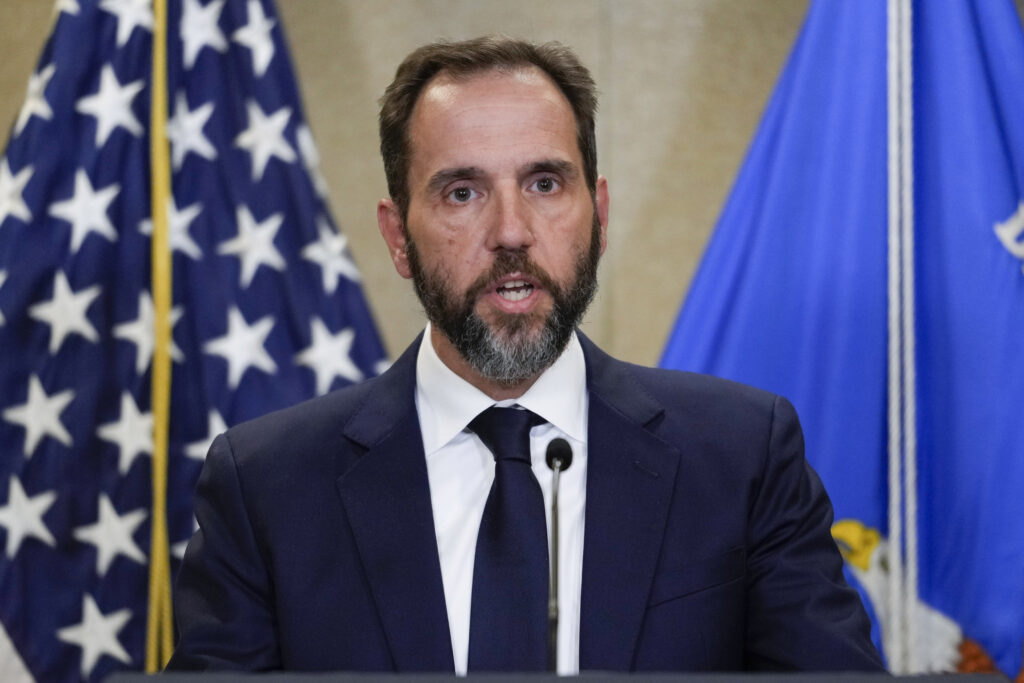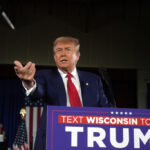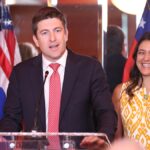
Special counsel Jack Smith called on the Supreme Court on Monday to reject a bid by Donald Trump to invoke presidential immunity to avoid a trial over an alleged effort to subvert the 2020 election results, saying the “Framers” never intended such privileges for former presidents.
The Supreme Court is poised to weigh Trump’s arguments on April 25 that he should not be prosecuted for acts taken while he was still president, namely Smith’s four-count indictment alleging an effort to upend President Joe Biden‘s 2020 election victory. Smith told the justices in a court filing that even if they find that former presidents enjoy some form of immunity, at least some of Trump’s actions were “private conduct” and should be prosecuted.

“The Framers never endorsed criminal immunity for a former President, and all Presidents from the Founding to the modern era have known that after leaving office they faced potential criminal liability for official acts,” Smith told the high court in a 66-page filing.
Smith took aim at several of Trump’s claims that have been made in an effort to convince the court that he should be immune from charges in the case. He pointed out that Trump “suggests that unless a criminal statute expressly names the President, the statute does not apply.”
“That radical suggestion, which would free the President from virtually all criminal law — even crimes such as bribery, murder, treason, and sedition — is unfounded,” the filing said, adding that the text of “nearly all” federal criminal laws covers all individuals, including the president.
Smith was appointed by Attorney General Merrick Garland in 2022 to investigate Trump’s alleged role to overturn the last presidential election along with Trump’s alleged mishandling of classified documents after leaving office. Altogether, Trump faces 88 charges across four criminal indictments as he seeks another run for presidential office, and he has pleaded not guilty in each case.
Trump filed his own initial argument in the election interference case last month, arguing that future presidents would become vulnerable to “de facto blackmail and extortion while in office” if the court denied him immunity, adding that past presidents could have been charged for actions they also took in office.
Smith addressed Trump’s claims directly in the latest brief, arguing the effective functioning of the presidency “does not require that a former president be immune from accountability” for the alleged violations of federal law.
The special prosecutor also sought to pour cold water on Trump’s assertion that his case would need to be reanalyzed by a trial court judge if the justices were to find that presidents enjoy some form of immunity. If the justices were to accept this argument, it could serve as another move to push an already-delayed trial even further back on the calendar.
“Even if the court were inclined to recognize some immunity for a former president’s official acts, it should remand for trial because the indictment alleges substantial private conduct in service of petitioner’s private aim,” Smith’s filing read.
“First, a President’s alleged criminal scheme to overturn an election and thwart the peaceful transfer of power to his lawfully elected successor is the paradigmatic example of conduct that should not be immunized, even if other conduct should be,” the special counsel added.
Smith furthered that the indictment should remain against Trump even if the high court rules in favor of a case brought by several Jan. 6 riot defendants charged with obstructing Congress’s efforts on Jan. 6, 2021. The case in question, Fischer v. United States, will be argued before the justices next week and posits that the Justice Department misappropriated an obstruction law against the rioters. Trump is facing two charges related to the law that will be examined by the high court.
“Whether the Court interprets [that provision] consistently with a natural reading of its text or adopts the evidence-impairment gloss urged by the petitioner in Fischer, the Section 1512 charges in this case are valid,” Smith wrote.
Trump’s effort to avoid trial in this federal case is crucial to his effort to evade any potential conviction ahead of the November 2024 election, as Trump could seek to dismiss his two federal indictments if he were to regain the presidency.
Two federal lower courts have already rejected Trump’s broad claims of presidential immunity, the latest being a three-judge panel for the U.S. Court of Appeals for the District of Columbia Circuit, which unanimously rejected Trump’s effort in February.
CLICK HERE TO READ MORE FROM THE WASHINGTON EXAMINER
Trump was initially slated to have his trial begin at the beginning of last month, but after appealing the D.C. Circuit’s ruling, the Supreme Court stepped in and scheduled arguments over the matter for the final week of April. A decision could come between May and June, and until then, proceedings are paused at the trial court level.
The former president is now preparing to embark on a trial in a separate criminal case in New York on allegations of falsified business statements related to hush money payments to a porn star in the final weeks of the 2016 presidential campaign. Jury selection is scheduled to begin April 15, and Trump has pleaded not guilty in that case.





